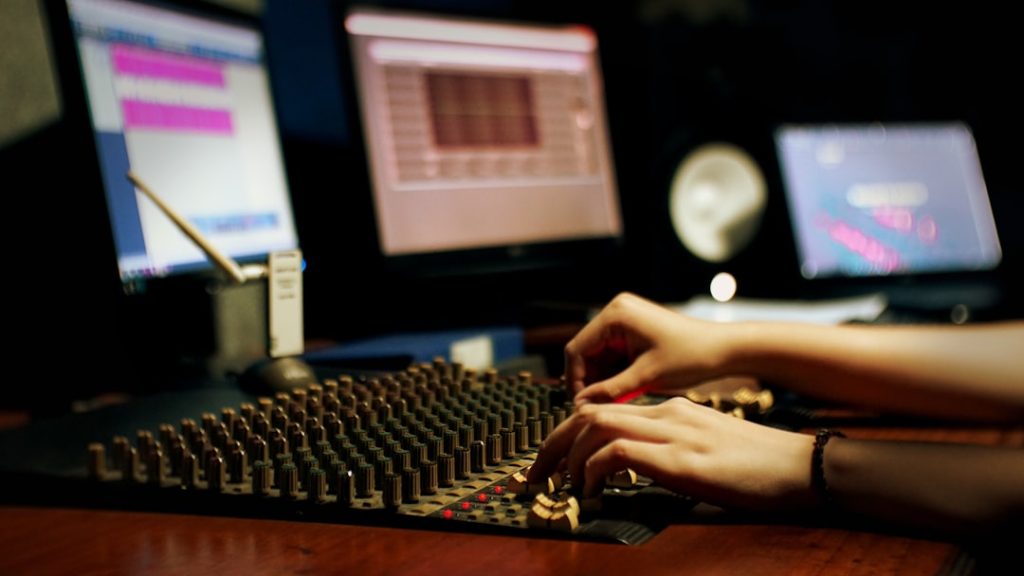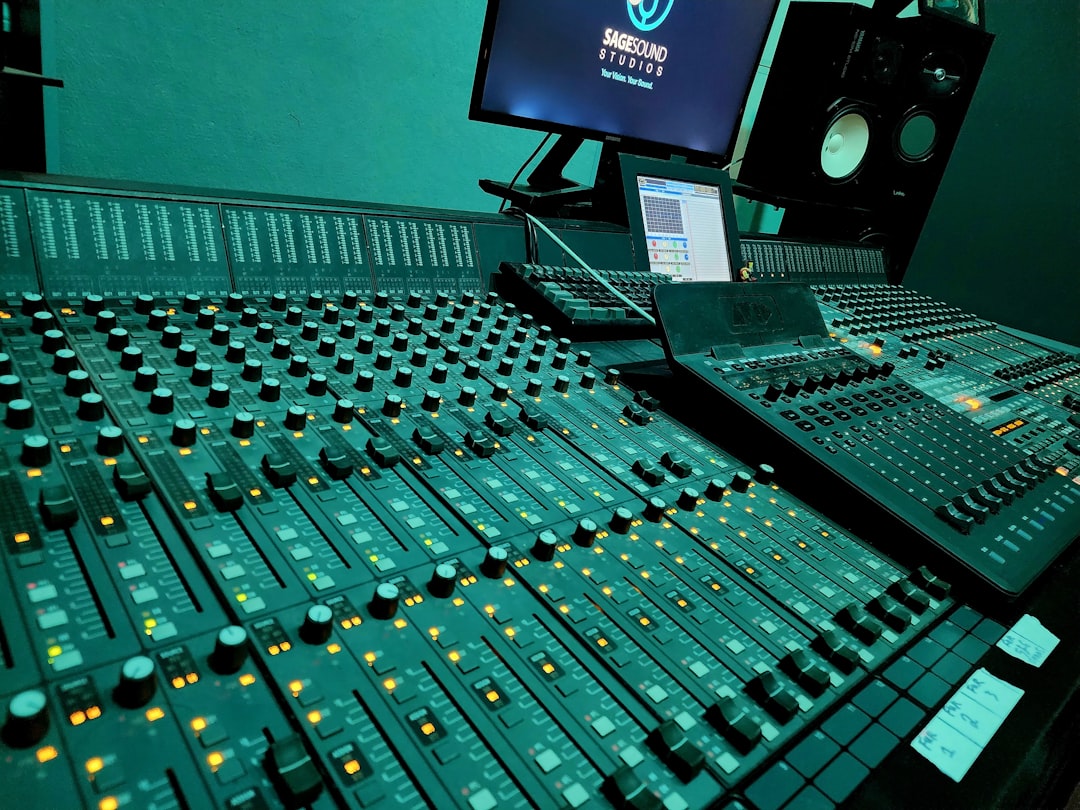How Disco AI is Revolutionizing Music and Audio Production
5 min read
Artificial Intelligence (AI) continues to shake the foundations of various industries, and the music and audio production landscape is no exception. One of the most exciting developments in this domain is Disco AI, a cutting-edge tool designed to enhance and streamline the creative process for musicians, producers, and sound designers alike. By weaving intelligent algorithms into the fabric of audio creation, Disco AI is not just changing how music is made—it’s redefining the role of human artistry in the digital age.
What is Disco AI?
At its core, Disco AI is an advanced music and audio production platform that utilizes artificial intelligence to assist users in tasks ranging from beat detection and auto-mixing to composition and mastering. Unlike traditional DAWs (Digital Audio Workstations), which rely heavily on user input and manual operations, Disco AI integrates sophisticated machine learning techniques to understand musical patterns, genres, and styles.
This AI-assisted environment enables artists to focus more on creativity and emotional expression, while letting the tool handle the technical and repetitive aspects of production. Its intuitive interface and robust processing engine are designed to cater equally to seasoned producers and those just stepping into the world of audio creation.
Key Features of Disco AI
Disco AI is not just a gimmick—it’s packed with functional tools that genuinely improve the music production process. Some of its most noteworthy features include:
- Automated Arrangement: The AI analyzes your melodies, rhythms, and chord progressions to suggest or generate full song arrangements.
- Dynamic Mixing: With intelligent EQ, compression, and leveling, Disco AI can mix tracks with professional quality in real time.
- Style Emulation: It can emulate the stylistic nuances of well-known producers or genres, helping creators experiment and explore new directions.
- Real-time Collaboration: Integrated cloud features allow multiple users to co-produce tracks in real time, no matter where they are in the world.
- Audio Stem Separation: Users can isolate vocals, drums, or instruments from any audio file, making remixing and sampling more accessible than ever.
Transforming the Creative Process
Perhaps the most revolutionary aspect of Disco AI is how it reshapes the creative process itself. Traditionally, music production has required a significant technical understanding—from mic placement to mastering chain configuration. However, with the help of Disco AI, artists can jump directly into the creative flow without getting bogged down in technicalities.
Imagine a singer-songwriter who gets inspiration for a melody and simply hums it into a microphone. Disco AI can transpose that melody, suggest chord progressions, and provide a convincing instrumental backdrop, all in under a few minutes. This immediacy transforms how quickly and freely artists can manifest ideas into tangible tracks.

Empowering Non-Musicians
One of Disco AI’s most democratic features is its ability to empower users without formal training in music theory, composition, or audio engineering. By breaking the barriers usually associated with music creation, Disco AI opens doors for aspiring artists, content creators, and even brands looking to produce tailor-made audio content.
A YouTube creator, for instance, could use Disco AI to generate custom background scores that match the mood and pacing of their video content. Likewise, game developers can quickly produce immersive soundscapes without hiring an entire sound production team. This level of accessibility is accelerating the pace at which multimedia creators integrate original music into their projects.
Collaboration and Feedback Loops
Another area where Disco AI shines is in fostering collaborative environments. Traditional collaboration often requires complex file transfers, DAW compatibility, and synchronization issues. Disco AI simplifies this with a shared cloud workspace that keeps projects continually up to date across all contributors.
Moreover, the AI itself acts as an intelligent collaborator, offering suggestions, flagging potential musical inconsistencies, and even adapting its approach based on user preferences. Some versions of the platform even allow iterative learning where the AI “learns” a user’s style over time, producing more personalized suggestions with each interaction.

Real-World Applications and Case Studies
Several prominent musicians and production houses have already begun integrating Disco AI into their workflows. One notable case involved a major-label producer who used the platform to rapidly prototype beats for a pop artist’s upcoming EP. The AI reduced the turnaround for beat demos from days to mere hours, freeing up time for refining the final tracks.
In another example, an indie documentary filmmaker used Disco AI to score an entire short film with zero prior experience in music production. Within days, the filmmaker had a fully orchestrated soundtrack that resonated with the emotional depth of the storyline.
These case studies illustrate how AI is not just a helper but a co-creator—smoothing workflows and introducing a layer of consistency and precision that is hard to achieve manually.
Risks and Ethical Considerations
Despite its sparkly appeal, the rise of AI in music production does raise some critical ethical and practical questions. For one, there’s the issue of originality. If AI is trained on existing music libraries, can its outputs ever really be considered ‘new’? There’s also concern among professionals that AI tools could eventually replace human jobs in audio engineering and composition.
However, many proponents argue that Disco AI serves more as an augmentative tool rather than a replacement. It’s not about taking artists out of the equation, but rather enhancing their capabilities and broadening their reach.
The Future of Audio Creation
The integration of AI into music and audio production is still in its early days, but the pace of innovation suggests rapid evolution. As platforms like Disco AI continue to develop, we may see:
- Smarter genre blending and genre creation driven by global musical tastes.
- Integration with AR/VR environments to produce responsive audio scores in real time.
- AI-generated live performances, combining visual avatars with real-time music generation.
- Deeper personalization options, where your morning playlist is uniquely composed based on your preferences, mood, and even heart rate.
Disco AI represents a leap forward not just as a software platform, but as a creative companion. It invites everyone—from bedroom producers to Hollywood composers—to imagine what’s possible when technology and art fuse seamlessly.
Conclusion
As we tune into this bold new audio frontier, it’s clear that Disco AI is more than just a tool—it’s a revolution. By removing technical friction, encouraging artistic exploration, and pushing the limits of what’s possible in sound design, Disco AI is shaping the soundtrack of the future. Whether you’re a musician, a filmmaker, or simply someone who loves to create, the age of intelligent audio is not just coming—it’s already here.



